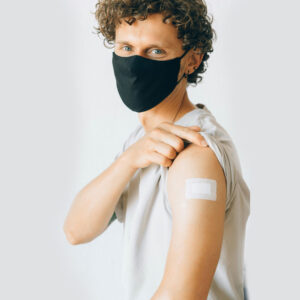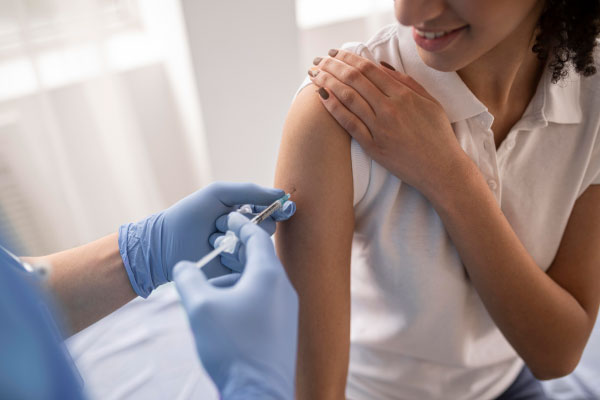Your Health, Our Priority - Safe Travels with iCare Pharmacy.
iCare Pharmacy specializes in travel health consultations to ensure your trips are safe and enjoyable. Our expert pharmacists provide personalized health advice tailored to your travel plans. We cover all aspects of your health needs from necessary vaccinations to tips on preventing common travel illnesses. We make the process easy with step-by-step guidance and ongoing support. Our convenient services and comprehensive care make us your trusted partner in travel health.
Your Health, Our Priority - Safe Travels with iCare Pharmacy.
iCare Pharmacy specializes in travel health consultations to ensure your trips are safe and enjoyable. Our expert pharmacists provide personalized health advice tailored to your travel plans. We cover all aspects of your health needs from necessary vaccinations to tips on preventing common travel illnesses. We make the process easy with step-by-step guidance and ongoing support. Our convenient services and comprehensive care make us your trusted partner in travel health.
What Is a Travel Consultation & Why Do I Need One?
Traveling whether it’s for a family vacation or to study abroad is a great experience that can be life changing. But to make sure your trip is a safe and healthy one, you should get a travel consultation at iCare Pharmacy.
Our team of highly trained practitioners can help keep you and your loved ones safe by making sure you get the required vaccinations and that you’re prepared to handle any potential health risks.
What Is a Travel Consultation & Why Do I Need One?
Traveling whether it’s for a family vacation or to study abroad is a great experience that can be life changing. But to make sure your trip is a safe and healthy one, you should get a travel consultation at iCare Pharmacy.
Our team of highly trained practitioners can help keep you and your loved ones safe by making sure you get the required vaccinations and that you’re prepared to handle any potential health risks.
Travel Menu
Travel Consultation for 2 Countries
$20/Traveller
Travel Consultation for more than 2 Countries
$40/Traveller
Cost per administration of Injection
$20
Please note that the cost of medication is additional to the consultation. We do take most insurances and can direct bill. If you would like the cost of specific vaccines or medication please contact us today!
Personalized Travel Health Consultations

Initial Consultation Process
Our travel health consultations are thorough and personalized. We start by reviewing your travel plans and medical history. This helps us understand your specific needs.

Customized Health Plans
We create a tailored health plan just for you. It includes recommended vaccines and medications. We also provide tips for staying healthy on your trip.

Step-by-Step Guidance
We guide you through each step of the process. From booking your appointment to getting your vaccines, we make it easy. Our goal is to ensure you are well-prepared.

Ongoing Support
We offer ongoing support throughout your travels. If you have questions or concerns we are here to help. Your health and safety are our top priorities.
What To Expect During a Travel Consultation?
Before The Consultation
After you make an appointment with our clinic you will receive a confirmation email that includes an online intake form. We ask you to complete the form with details of your destination, the duration of your trip and your planned activities for the trip. You will also be asked to provide information on your health and any medication that you are taking. The travel clinic staff will prepare individual vaccination and malaria advice based on this information.

Before The Consultation
After you make an appointment with our clinic you will receive a confirmation email that includes an online intake form. We ask you to complete the form with details of your destination, the duration of your trip and your planned activities for the trip. You will also be asked to provide information on your health and any medication that you are taking. The travel clinic staff will prepare individual vaccination and malaria advice based on this information.

During the consultation
We will discuss the vaccination and malaria advice with you on the day of your consultation. You will receive the recommended vaccinations immediately and if necessary, you will be given a prescription for malaria prophylaxis. There will be plenty of time during your appointment to ask any questions you may have. We take extra time for your children if they accompany you to your appointment.


During the consultation
We will discuss the vaccination and malaria advice with you on the day of your consultation. You will receive the recommended vaccinations immediately and if necessary, you will be given a prescription for malaria prophylaxis. There will be plenty of time during your appointment to ask any questions you may have. We take extra time for your children if they accompany you to your appointment.
Understanding Travel Health Risks

Common Travel-Related Illnesses
Traveling exposes you to various health risks. Common issues include traveler’s diarrhea, malaria and dengue fever. Knowing these risks helps you prepare better

Preventative Measures
Simple steps can prevent many health issues. Drink bottled water, eat well cooked food and use insect repellent. These precautions keep you healthy during your travels.

Importance of Vaccinations
Vaccinations and immunizations are crucial for preventing serious illnesses. They protect you from diseases like yellow fever and hepatitis. Stay updated on the required vaccines for your destination.

Staying Informed
Research your destination before you go. Understand the health risks and necessary precautions. Knowledge is your best defense against travel related illnesses.
Understanding Travel Health Risks

Common Travel-Related Illnesses
Traveling exposes you to various health risks. Common issues include traveler’s diarrhea, malaria and dengue fever. Knowing these risks helps you prepare better

Preventative Measures
Simple steps can prevent many health issues. Drink bottled water, eat well cooked food and use insect repellent. These precautions keep you healthy during your travels.

Importance of Vaccinations
Vaccinations and immunizations are crucial for preventing serious illnesses. They protect you from diseases like yellow fever and hepatitis. Stay updated on the required vaccines for your destination.

Staying Informed
Research your destination before you go. Understand the health risks and necessary precautions. Knowledge is your best defense against travel related illnesses.
Health Tips
- Drink only bottled/boiled water or carbonated drinks in cans or bottles without ice
- Wash hands frequently with soap and water
- Don't swim in freshwater, salt water is typically safer.
- Prevent fungal and parasitic infections by not going barefoot
- Food and waterborne diseases are the number one cause of illness for travelers
- Don't handle animals
- Protect yourself from insects: remain in screened areas, use insect repellent and wear long sleeves and pants
- Bring a backup supply of prescription medications
Why Choose iCare Pharmacy for Travel Consultations?

Expert Guidance
Our pharmacists are travel health experts. They provide personalized advice based on your travel plans. You can trust their experience to keep you safe.

Comprehensive Vaccination Services
We offer a wide range of essential travel vaccines. From yellow fever to typhoid, we have you covered. Our vaccines are safe and up to date.

Convenient Location and Services
Our pharmacy is easy to reach. Scheduling an appointment is quick and simple. We ensure your travel preparations are hassle free.

Personalized Care
We tailor our advice to your unique needs. Every traveler gets a customized health plan. Your safety is our top priority.
Frequently Asked Questions (FAQs)
The vaccines you need depend on your destination. Common vaccines include yellow fever, typhoid and hepatitis. We help you determine which vaccines are necessary for your trip.
The vaccines you need depend on your destination. Common vaccines include yellow fever, typhoid and hepatitis. We help you determine which vaccines are necessary for your trip.
It’s best to get vaccinated at least 4 to 6 weeks before travel. Some vaccines require multiple doses or take time to become effective. Early planning ensures full protection.
It’s best to get vaccinated at least 4 to 6 weeks before travel. Some vaccines require multiple doses or take time to become effective. Early planning ensures full protection.
No, you do not need a prescription for travel vaccines. Our pharmacists provide the necessary vaccines during your consultation. We make the process easy and convenient.
No, you do not need a prescription for travel vaccines. Our pharmacists provide the necessary vaccines during your consultation. We make the process easy and convenient.
Most vaccines have minor side effects like soreness at the injection site. Some people may experience mild fever or tiredness. Our pharmacists will inform you about potential side effects.
Most vaccines have minor side effects like soreness at the injection site. Some people may experience mild fever or tiredness. Our pharmacists will inform you about potential side effects.
Preventing travel illnesses involves taking simple precautions. Drink bottled water, eat well-cooked food and use insect repellent. Follow our tips to stay healthy during your travels.
Preventing travel illnesses involves taking simple precautions. Drink bottled water, eat well-cooked food and use insect repellent. Follow our tips to stay healthy during your travels.
Bring your travel itinerary and any previous vaccination records. This information helps us provide the best advice and services. If you have a medical history share it with us.
Bring your travel itinerary and any previous vaccination records. This information helps us provide the best advice and services. If you have a medical history share it with us.
Yes, we provide travel medications like anti-malarials and antibiotics. Our pharmacists will recommend the right medications for your needs. We ensure you are fully prepared for your trip.
Yes, we provide travel medications like anti-malarials and antibiotics. Our pharmacists will recommend the right medications for your needs. We ensure you are fully prepared for your trip.
Please note that the prices of medications and immunizations below are listed before insurance. Prices may be lower if covered through insurance. Please contact us if you would like to know how much a particular medication would cost you after insurance.
Vaccine and Services
Price (per dose)
- Travel Consultation
$20 per traveler
- Cipro/Zithromax/Travelers Diarrhea
- Malarone/Plaquenil/Doxycycline/Antimalarial Medication
Prices will differ based on prescription
- Havrix/Hepatitis A (2 doses) (0 - 6 mos)
$70.00 (per dose) $42.00 Kids (per dose)
- Engerix B/Hepatitis B (3 doses) (0-4W - 6 mos)
$40.00 / $37.00 Kids (per dose)
- Twinrix/Hepatitis A & B (3 doses) (0-4W - 6 mos)
$77.00/$44.00 Kids (per dose)
- Shingrix/Shingles Vaccine (2 doses) (0 – 2 mos)
$170.00 (per dose)
- Vivotiff/Typhoid (Oral) (4 tabs every other day)
$41.00
- Typhoid (Injection)/Typhim
$46.00
- Menactra/Meningitis (ACY-W135)
$135.00
- ViVAXIM/Typhoid and Hepatitis A Combination
$99.00
- *00514462 Tetanus & Diphtheria
No Charge
- *02240255 Tetanus, Diphtheria & Pertussis
No Charge
- Imovax Polio/Polio
$70.00
- Dukoral/Oral Cholera / Travellers Diarrhea
$112.00 full dose/$62.00 booster
- 02239208* MMR (Measles, Mumps & Rubella)
$33.00
- Rabavert/Rabies (3 doses) (0-7-21/28 days)
$236.00 (per dose)
- Ixiaro/Japanese Encephalitis (3 doses) (0-7days 12mos)
$251.00 (per dose)
- Gardasil 9/Cervical Cancer (3 doses)
$223.00 (per dose)
- 00428833* Yellow Fever Vaccine/Stamaril (International Certificate)
$170.00
- Varivax III/Varicella
$113.00 (per dose)
- Prevnar 13/Pneumonia
$135.00
- Pneumovax/Pneumonia
0.00
- Yellow Fever Exemption Certificates
$180.00 each
- School Forms-
$20.00
Havrix
Protect Against Hepatitis A
Havrix is a vaccine designed to protect against Hepatitis A, a viral infection that can cause liver inflammation and affect its ability to function normally. Hepatitis A is typically transmitted through contaminated food and water
What is Hepatitis A?
- Transmission: Hepatitis A can be contracted by consuming contaminated food such as raw fruits and vegetables or water. It’s important to follow the rule: “Cook it, Wash it, Peel it, or Forget it” to reduce the risk.
- Symptoms: Symptoms include fatigue, nausea, abdominal pain, loss of appetite, and jaundice (yellowing of the skin and eyes).
- Complications: Although usually not chronic, severe cases can lead to liver failure, particularly in older adults and those with pre-existing liver conditions.
Why Get the Havrix Vaccine?
- Effective Prevention: Havrix provides effective protection against Hepatitis A, preventing the onset of symptoms and complications.
- Safe and Well-Tolerated: The vaccine is well-tolerated with a strong safety record.
- Long-Lasting Immunity: Havrix offers long-term immunity after the full vaccination series.
Who Should Get Havrix?
- Travelers: Those visiting regions with high rates of Hepatitis A, such as parts of Africa, Asia, and Central and South America.
- At-Risk Individuals: People with chronic liver disease, men who have sex with men, and those who use recreational drugs.
- Anyone Seeking Protection: Individuals who want to ensure they are protected against Hepatitis A.
Vaccination Schedule
- Initial Dose: The first dose provides initial protection.
- Booster Dose: A booster dose is recommended 6-12 months after the first dose to ensure long-term protection.
Engerix B
Protect Against Hepatitis B
Engerix B is a vaccine designed to protect against Hepatitis B, a serious liver infection caused by the Hepatitis B virus (HBV). Hepatitis B can lead to chronic liver disease, liver failure, and liver cancer.
What is Hepatitis B?
- Transmission: Hepatitis B is spread through contact with infectious body fluids, such as blood, semen, and vaginal fluids. Common modes of transmission include unprotected sex, sharing needles, and from mother to child during childbirth.
- Symptoms: Symptoms can range from mild to severe and include fatigue, jaundice (yellowing of the skin and eyes), abdominal pain, dark urine, and nausea. Chronic infection can lead to liver damage and cirrhosis.
- Complications: Chronic Hepatitis B can result in serious health issues, including liver scarring (cirrhosis), liver failure, and liver cancer.
Why Get the Engerix B Vaccine?
- Effective Prevention: Engerix B provides strong protection against Hepatitis B, significantly reducing the risk of infection and its complications.
- Safe and Well-Tolerated: The vaccine has a proven safety record and is well-tolerated by most people.
- Long-Term Protection: Engerix B offers long-lasting immunity against Hepatitis B after the full vaccination series.
Who Should Get Engerix B?
- Infants and Children: Routine vaccination is recommended for all infants and children.
- At-Risk Adults: Including healthcare workers, individuals with multiple sexual partners, people with chronic liver disease, those who inject drugs, and individuals traveling to regions with high Hepatitis B prevalence.
- Anyone Seeking Protection: Individuals who want to ensure they are protected against Hepatitis B.
Vaccination Schedule
- Infants: Typically given in a series of doses starting at birth.
- Adults: Generally administered in a series of three doses over a six-month period. An accelerated schedule may be available for those needing rapid protection.
Benefits of Engerix B
- Enhanced Immunity: Provides robust protection against Hepatitis B, reducing the risk of chronic liver disease.
- Convenience: Available in a standard series of doses for both children and adults.
- Safety: Proven to be safe and effective with minimal side effects.
Twinrix
Dual Protection Against Hepatitis A and B
Twinrix is a combination vaccine that provides protection against both Hepatitis A and Hepatitis B. This convenient vaccination is ideal for travelers and individuals who need immunity against both viruses.
What are Hepatitis A and B?
- Hepatitis A: A viral infection that affects the liver, transmitted through contaminated food and water. Symptoms include fatigue, nausea, abdominal pain, loss of appetite, and jaundice. Hepatitis A does not cause chronic liver disease but can cause severe acute illness.
- Hepatitis B: A serious liver infection caused by the Hepatitis B virus (HBV), transmitted through contact with infectious body fluids like blood and semen. It can lead to chronic liver disease, liver failure, and liver cancer. Symptoms include fatigue, jaundice, abdominal pain, dark urine, and nausea.
Why Get the Twinrix Vaccine?
- Dual Protection: Provides immunity against both Hepatitis A and B in one convenient vaccine.
- Effective Prevention: Significantly reduces the risk of infection and associated complications from both viruses.
- Safe and Well-Tolerated: Twinrix has a proven safety record and is well-tolerated by most people.
- Long-Term Immunity: Offers long-lasting protection after completing the vaccination series.
Who Should Get Twinrix?
- Travelers: Those visiting regions with high rates of Hepatitis A and B, such as parts of Africa, Asia, and Central and South America.
- At-Risk Individuals: Including healthcare workers, individuals with multiple sexual partners, people with chronic liver disease, and those who inject drugs.
- Anyone Needing Dual Protection: Individuals who want to ensure they are protected against both Hepatitis A and B.
Vaccination Schedule
- Standard Schedule: Three doses over six months. The first dose at month 0, the second dose at month 1, and the third dose at month 6.
- Accelerated Schedule: Four doses. The first three doses given within three weeks (day 0, day 7, and day 21), and a fourth dose at 12 months for rapid protection.
Benefits of Twinrix
- Enhanced Immunity: Provides strong and lasting protection against both Hepatitis A and B.
- Convenience: Combines two vaccines into one, reducing the number of injections needed.
- Safety: Proven to be safe and effective with minimal side effects.
Shingrix
Effective Protection Against Shingles
Shingrix is a vaccine designed to protect against shingles (herpes zoster), a painful rash caused by the reactivation of the varicella-zoster virus, the same virus that causes chickenpox. Shingrix is highly effective and recommended for adults over the age of 50.
What is Shingles?
- Cause: Shingles occurs when the dormant varicella-zoster virus reactivates in the body, often many years after an initial chickenpox infection.
- Symptoms: The main symptom is a painful rash, usually on one side of the body or face. Other symptoms can include fever, headache, and fatigue.
- Complications: Shingles can lead to long-term nerve pain known as postherpetic neuralgia (PHN), which can last for months or even years after the rash has healed. Other complications can include vision loss, neurological problems, and skin infections.
Why Get the Shingrix Vaccine?
- High Efficacy: Shingrix is over 90% effective at preventing shingles and PHN, even in older adults.
- Long-Lasting Protection: Provides strong protection against shingles and its complications for many years.
- Safe and Well-Tolerated: Shingrix has a strong safety profile, with most side effects being mild and temporary, such as soreness at the injection site or mild flu-like symptoms.
Who Should Get Shingrix?
- Adults 50 and Older: Recommended for all adults over the age of 50, even if they have had shingles before or received the previous shingles vaccine (Zostavax).
- Immunocompromised Individuals: Those with weakened immune systems due to conditions or treatments should consider vaccination, as they are at higher risk for shingles and its complications.
Vaccination Schedule
- Two Doses: The vaccine is administered in two doses. The second dose is given 2 to 6 months after the first dose to ensure optimal protection.
Benefits of Shingrix
- Prevents Shingles and PHN: Significantly reduces the risk of developing shingles and its most common complication, postherpetic neuralgia.
- Protects Quality of Life: By preventing the pain and complications associated with shingles, Shingrix helps maintain a better quality of life for older adults.
- Proven Safety: Clinical trials and real-world use have demonstrated the safety and effectiveness of Shingrix.
Vivotif
Oral Vaccine for Typhoid Fever
Vivotif is an oral vaccine designed to protect against typhoid fever, a serious bacterial infection caused by Salmonella Typhi. This vaccine is ideal for travelers to regions where typhoid fever is common.
What is Typhoid Fever?
- Cause: Typhoid fever is caused by the bacterium Salmonella Typhi, typically spread through contaminated food and water.
- Symptoms: Symptoms include high fever, weakness, stomach pain, headache, and loss of appetite. In severe cases, it can lead to complications such as intestinal perforation.
- Transmission: The bacteria can be spread through the feces of infected individuals, emphasizing the importance of good sanitation and hygiene practices.
Why Get the Vivotif Vaccine?
- Effective Prevention: Vivotif provides immunity against typhoid fever, significantly reducing the risk of infection.
- Oral Administration: The vaccine is taken orally, making it a convenient option for travelers.
- Long-Lasting Protection: Offers protection for several years, with a booster recommended for those at continued risk.
Who Should Get Vivotif?
- Travelers: Those visiting areas with high rates of typhoid fever, such as parts of Asia, Africa, and Latin America.
- At-Risk Individuals: People who may be exposed to unsanitary conditions or those working in regions where typhoid fever is endemic.
- Anyone Seeking Protection: Individuals who want to ensure they are protected against typhoid fever.
Vaccination Schedule
- Primary Series: The vaccine is taken as a series of four capsules over a week. One capsule is taken every other day (days 1, 3, 5, and 7).
- Booster Dose: A booster is recommended every five years for those who remain at risk.
Benefits of Vivotif
- Enhanced Immunity: Provides effective protection against typhoid fever, reducing the risk of severe illness.
- Convenient Oral Dosage: Easy to take and does not require an injection, which can be advantageous for travelers.
- Proven Safety: The vaccine is safe and well-tolerated with minimal side effects.
Typhim
Injectable Vaccine for Typhoid Fever
Typhim is an injectable vaccine designed to protect against typhoid fever, a serious bacterial infection caused by Salmonella Typhi. This vaccine is particularly suitable for travelers to areas where typhoid fever is prevalent.
What is Typhoid Fever?
- Cause: Typhoid fever is caused by the bacterium Salmonella Typhi, which is typically spread through contaminated food and water.
- Symptoms: Symptoms include high fever, weakness, stomach pain, headache, and loss of appetite. Severe cases can lead to complications such as intestinal perforation.
- Transmission: The bacteria are spread through the feces of infected individuals, highlighting the importance of good sanitation and hygiene practices.
Why Get the Typhim Vaccine?
- Effective Prevention: Typhim provides strong protection against typhoid fever, significantly reducing the risk of infection.
- Injectable Option: As an injectable vaccine, Typhim is an alternative for those who prefer or require a non-oral vaccine.
- Long-Lasting Protection: Offers protection for several years, with a booster recommended for those at continued risk.
Who Should Get Typhim?
- Travelers: Those visiting regions with high rates of typhoid fever, such as parts of Asia, Africa, and Latin America.
- At-Risk Individuals: People who may be exposed to unsanitary conditions or those working in areas where typhoid fever is endemic.
- Anyone Seeking Protection: Individuals who want to ensure they are protected against typhoid fever.
Vaccination Schedule
- Single Dose: One injection provides protection. It is typically administered at least two weeks before potential exposure to Salmonella Typhi.
- Booster Dose: A booster is recommended every two years for those who remain at risk.
Benefits of Typhim
- Enhanced Immunity: Provides effective protection against typhoid fever, reducing the risk of severe illness.
- Injectable Convenience: Ideal for those who prefer or require an injection rather than an oral vaccine.
- Proven Safety: The vaccine is safe and well-tolerated with minimal side effects.
Yellow Fever
Protect Yourself with Vaccination
Yellow fever is a viral disease transmitted by infected mosquitoes, primarily found in tropical and subtropical areas of Africa and South America. It can range from a mild illness to a severe disease with serious complications, including death.
What is Yellow Fever?
- Cause: Yellow fever is caused by the yellow fever virus, which is spread by the bite of an infected mosquito.
- Symptoms: Symptoms include fever, headache, jaundice (yellowing of the skin and eyes), muscle pain, nausea, vomiting, and fatigue. Severe cases can lead to bleeding, shock, organ failure, and death.
- Transmission: The virus is transmitted by Aedes or Haemagogus mosquitoes, which are found in tropical and subtropical regions.
Why Get the Yellow Fever Vaccine?
- Effective Prevention: The yellow fever vaccine is highly effective, providing immunity within 10 days for 95% of people and 99% immunity within 30 days.
- Travel Requirements: Some countries require proof of yellow fever vaccination for entry, particularly if you are traveling from a region where yellow fever is endemic.
- Long-Lasting Protection: A single dose of the vaccine provides lifelong protection for most individuals.
Who Should Get the Yellow Fever Vaccine?
- Travelers: Those visiting areas where yellow fever is present, including parts of Africa and South America.
- Residents in Endemic Areas: Individuals living in or moving to regions with ongoing transmission of yellow fever.
- Anyone Seeking Protection: Individuals who want to ensure they are protected against yellow fever.
Vaccination Schedule
- Single Dose: One injection provides long-lasting protection. It is recommended to get vaccinated at least 10 days before traveling to an area where yellow fever is present.
Benefits of the Yellow Fever Vaccine
- High Efficacy: Provides strong and lasting immunity against yellow fever.
- Prevents Severe Illness: Reduces the risk of severe complications and death associated with yellow fever.
- Travel Compliance: Meets international travel requirements for entry into certain countries.
Varivax
Protection Against Chickenpox
Varivax is a vaccine designed to protect against chickenpox (varicella), a highly contagious viral infection caused by the varicella-zoster virus. Chickenpox is common in children but can affect people of all ages and lead to serious complications.
What is Chickenpox?
- Cause: Chickenpox is caused by the varicella-zoster virus, which spreads easily from person to person through direct contact with the rash or through the air by respiratory droplets.
- Symptoms: The primary symptoms include an itchy, blister-like rash, fever, fatigue, and loss of appetite. The rash typically starts on the chest, back, and face, then spreads to the rest of the body.
- Complications: While chickenpox is usually mild in children, it can cause serious complications in adults such as bacterial infections of the skin, pneumonia, encephalitis (brain inflammation), and in rare cases, death. Adults and individuals with weakened immune systems are at higher risk for severe disease.
Why Get the Varivax Vaccine?
- Effective Prevention: Varivax provides strong protection against chickenpox, preventing the disease in most people who receive the vaccine.
- Reduces Severity: In cases where vaccinated individuals do contract chickenpox, the disease is usually much milder with fewer lesions and less severe symptoms.
- Safe and Well-Tolerated: The vaccine is safe for most people and has a strong safety record.
Who Should Get Varivax?
- Children: The vaccine is recommended for all children, typically given in two doses. The first dose is usually administered at 12-15 months, and the second dose at 4-6 years.
- Adults: Those who have never had chickenpox or the vaccine should get vaccinated, especially if they are at high risk of exposure or complications, such as healthcare workers, teachers, and adults living with young children.
- At-Risk Individuals: People with weakened immune systems or those planning to become pregnant should consult their healthcare provider about vaccination.
Vaccination Schedule
- Children: Two doses, the first at 12-15 months and the second at 4-6 years.
- Adults: Two doses, given 4-8 weeks apart if they have never been vaccinated or had chickenpox.
Benefits of Varivax
- Comprehensive Protection: Prevents chickenpox and reduces the risk of complications associated with the disease.
- Community Immunity: Widespread vaccination helps protect those who cannot be vaccinated, such as newborns and individuals with certain medical conditions.
- Proven Safety: Extensive studies have shown the vaccine to be safe and effective in preventing chickenpox.
Meningitis Protection
Preventative Measures for Travelers
Malaria is a serious and sometimes fatal disease caused by parasites transmitted through the bites of infected mosquitoes. Malaria prophylaxis refers to the preventive measures, including medication, taken to protect against malaria, especially for travelers visiting malaria-endemic areas.
What is Malaria?
- Cause: Malaria is caused by the Plasmodium parasite, with Plasmodium falciparum being the most deadly species. The parasite is transmitted to humans through the bites of infected female Anopheles mosquitoes.
- Symptoms: Symptoms include high fever, chills, headache, nausea, vomiting, muscle pain, and fatigue. If not treated promptly, malaria can lead to severe complications such as anemia, organ failure, and death.
- Transmission: The disease is prevalent in tropical and subtropical regions, including parts of Africa, Asia, Central and South America, and the Middle East.
Why Use Malaria Prophylaxis?
- Effective Prevention: Prophylactic medications significantly reduce the risk of contracting malaria.
- Prevents Severe Illness: Early prevention can prevent the severe complications associated with malaria, including death.
- Safe and Well-Tolerated: Malaria prophylaxis medications are generally safe and well-tolerated with proper use.
Common Malaria Prophylaxis Medications
- Atovaquone/Proguanil (Malarone): Taken daily, starting 1-2 days before travel and continuing for 7 days after leaving the malaria area. It is well-tolerated with minimal side effects.
- Doxycycline: Taken daily, starting 1-2 days before travel and continuing for 4 weeks after leaving the malaria area. It can cause sun sensitivity and should be taken with plenty of water to avoid esophageal irritation.
- Mefloquine: Taken weekly, starting at least 2 weeks before travel and continuing for 4 weeks after leaving the malaria area. It is effective but may cause side effects such as vivid dreams or neuropsychiatric reactions.
- Chloroquine: Taken weekly, starting 1-2 weeks before travel and continuing for 4 weeks after leaving the malaria area. It is only used in areas without chloroquine-resistant malaria.
Who Should Take Malaria Prophylaxis?
- Travelers to Endemic Areas: Anyone traveling to regions where malaria is prevalent should take prophylactic medications.
- Long-Term Travelers and Expats: Individuals living in malaria-endemic areas for extended periods.
- High-Risk Individuals: Those with weakened immune systems or other health conditions that increase the risk of severe malaria.
Additional Preventive Measures
- Avoid Mosquito Bites: Use insect repellent, wear long sleeves and pants, and sleep under insecticide-treated bed nets.
- Environmental Control: Stay in accommodations with air conditioning or screened windows to reduce mosquito exposure.
Benefits of Malaria Prophylaxis
- Enhanced Protection: Reduces the risk of contracting malaria and the severity of symptoms if infected.
- Peace of Mind: Allows travelers to enjoy their trips without the constant worry of malaria.
- Proven Safety: Medications used for malaria prophylaxis are extensively studied and monitored for safety.
Vivaxim
Dual Protection Against Hepatitis A and Typhoid
Vivaxim is a combination vaccine that provides protection against both Hepatitis A and Typhoid fever. This dual vaccine is ideal for travelers who need immunity against these two serious diseases.
What are Hepatitis A and Typhoid?
- Hepatitis A: A viral infection that affects the liver, transmitted through contaminated food and water. Symptoms include fatigue, nausea, abdominal pain, loss of appetite, and jaundice. Although it does not cause chronic liver disease, severe cases can lead to acute liver failure.
- Typhoid Fever: A bacterial infection caused by Salmonella Typhi, spread through contaminated food and water. Symptoms include high fever, weakness, stomach pain, headache, and loss of appetite. Severe cases can result in complications such as intestinal perforation and death.
Why Get the Vivaxim Vaccine?
- Dual Protection: Vivaxim offers immunity against both Hepatitis A and Typhoid fever in one convenient injection.
- Effective Prevention: Significantly reduces the risk of contracting these diseases, which are common in many developing countries.
- Safe and Well-Tolerated: The vaccine has a strong safety record and is well-tolerated by most individuals.
- Convenient: Combining two vaccines into one reduces the number of injections needed, making it easier for travelers to stay protected.
Who Should Get Vivaxim?
- Travelers: Those visiting areas where Hepatitis A and Typhoid fever are prevalent, such as parts of Asia, Africa, and Latin America.
- At-Risk Individuals: People who may be exposed to unsanitary conditions or consuming potentially contaminated food and water.
- Anyone Seeking Dual Protection: Individuals who want to ensure they are protected against both Hepatitis A and Typhoid fever.
Vaccination Schedule
- Single Dose: One injection provides protection against both diseases. It is recommended to get vaccinated at least 2 weeks before traveling to an area where these diseases are common.
- Booster Doses: For ongoing protection, a booster for Hepatitis A may be needed 6-12 months after the initial dose, and a booster for Typhoid is recommended every 2-3 years for those at continued risk.
Benefits of Vivaxim
- Enhanced Immunity: Provides strong and lasting protection against Hepatitis A and Typhoid fever.
- Convenience: Reduces the need for multiple vaccinations, making it simpler for travelers to stay protected.
- Proven Safety: The vaccine is safe and effective with minimal side effects.
Malaria Prophylaxis
Vaccination for the Meningitis Belt
Meningitis is a serious bacterial infection that causes inflammation of the protective membranes covering the brain and spinal cord. The “meningitis belt” refers to a region in sub-Saharan Africa where meningitis epidemics are most frequent
What is Meningitis?
- Cause: Meningitis can be caused by various bacteria, with Neisseria meningitidis being the most common in the meningitis belt. Other causes include viruses, fungi, and parasites.
- Symptoms: Early symptoms include fever, headache, and stiff neck, often accompanied by nausea, vomiting, sensitivity to light, and altered mental status. Meningitis can progress rapidly and may result in severe complications or death if not treated promptly.
- Transmission: The bacteria that cause meningitis are spread through respiratory droplets from coughing, sneezing, or close contact with an infected person.
Why Get the Meningitis Vaccine?
- Effective Prevention: Vaccination is the most effective way to protect against meningitis, particularly for those traveling to or living in the meningitis belt.
- Prevents Severe Disease: The vaccine significantly reduces the risk of severe disease, complications, and death associated with meningitis.
- Safe and Well-Tolerated: Meningitis vaccines have a strong safety record and are well-tolerated by most people.
Who Should Get the Meningitis Vaccine?
- Travelers: Those visiting or living in the meningitis belt, particularly during the dry season (December to June), when outbreaks are most common.
- Residents: People living in the meningitis belt should be vaccinated to prevent outbreaks and protect their communities.
- At-Risk Populations: Individuals in close quarters, such as college students, military recruits, and those with certain medical conditions that increase their risk of infection.
Vaccination Schedule
- MenACWY Vaccine: Protects against four major serogroups of Neisseria meningitidis (A, C, W, Y). It is recommended for travelers to the meningitis belt.
- MenB Vaccine: Protects against serogroup B of Neisseria meningitidis. Consult your healthcare provider to see if this vaccine is needed based on your travel plans and risk factors.
Benefits of the Meningitis Vaccine
- Enhanced Immunity: Provides robust protection against multiple strains of the bacteria that cause meningitis.
- Prevents Epidemics: Widespread vaccination can help prevent large-scale outbreaks, particularly in high-risk areas like the meningitis belt.
- Proven Safety: The vaccine is safe and effective, with minimal side effects.
Traveler’s Diarrhea
Stay Prepared
Traveler’s diarrhea is a common issue for those visiting new regions. Prevent it by boiling water before drinking and ensuring your food is fully cooked. Dukoral is a preventative vaccine that can help reduce the risk.
If you do get traveler’s diarrhea, Ciprofloxacin and Azithromycin are effective antibiotics that can treat mild to moderate cases. It’s always a good idea to have these medications on hand just in case.
Tetanus, Diphtheria, and Pertussis (Tdap)
Essential Immunization
Tetanus, Diphtheria, and Pertussis (whooping cough) are serious bacterial infections that can be prevented with the Tdap vaccine.
What is Tdap
- Tetanus: Often known as lockjaw, tetanus causes severe muscle stiffness and spasms, typically starting in the jaw and neck. It can enter the body through cuts or wounds.
- Diphtheria: This infection affects the mucous membranes of the throat and nose, causing a thick covering in the back of the throat, which can lead to breathing difficulties, heart failure, and even death.
- Pertussis: Known as whooping cough, pertussis is highly contagious and causes severe coughing fits that can last for weeks, making it difficult to breathe.
The Tdap vaccine is recommended for
- Adolescents: Booster shots during teenage years.
- Adults: A booster every 10 years or during each pregnancy.
- Travelers: Especially important for those visiting areas where these diseases are more common.
Polio
The Importance of Booster Vaccinations
Polio, or poliomyelitis, is a highly infectious viral disease that can cause paralysis and even death. Although global vaccination efforts have significantly reduced polio cases, recent years have seen a rise in polio rates in some regions due to decreased vaccination coverage and outbreaks.
Why a Polio Booster is Recommended:
- Rising Rates: Increased polio cases in certain areas highlight the need for continued vigilance.
- Travel Risks: Travelers to regions with active polio transmission are at higher risk and should ensure their vaccinations are up to date.
- Lifelong Protection: A booster shot enhances immunity and provides continued protection against the virus.
The polio vaccine is safe and effective, typically administered in childhood with additional boosters recommended for adults traveling to or residing in areas with polio outbreaks.
Cholera
Prevention with Dukoral
Cholera is an acute diarrheal illness caused by the bacterium Vibrio cholerae. It is typically contracted through contaminated food and water and can cause severe dehydration and death if left untreated.
Dukoral Vaccine
- Dukoral is an oral vaccine that helps protect against cholera. It is recommended for travelers to areas with a high risk of cholera, such as parts of Africa, Asia, and the Caribbean.
Benefits of Dukoral
- Protection Against Cholera: Dukoral stimulates the immune system to fight the Vibrio cholerae
- Ease of Use: Taken orally, making it convenient for travelers.
- Additional Benefits: Dukoral also provides some protection against Escherichia coli (ETEC), a common cause of traveler’s diarrhea.
Who Should Get Dukoral?
- Travelers: Especially those visiting regions with known cholera outbreaks.
- High-Risk Individuals: People with compromised immune systems or underlying health conditions.
How to Take Dukoral
- Initial Dose: Two doses taken 1 to week apart.
- Booster Dose: Recommended every 2 years for ongoing protection.
Measles, Mumps, and Rubella (MMR)
The Importance of Staying Up-to-Date
Measles, Mumps, and Rubella are highly contagious viral infections that can lead to serious health complications. The MMR vaccine provides effective protection against all three diseases.
Measles
- Symptoms: High fever, cough, runny nose, red eyes, and a characteristic red rash.
- Complications: Can lead to pneumonia, encephalitis (brain inflammation), and death.
Mumps
- Symptoms: Swollen salivary glands, fever, headache, muscle aches, and fatigue.
- Complications: Can cause meningitis, encephalitis, permanent hearing loss, and infertility.
Importance of Being Up-to-Date with MMR Vaccination
- Prevent Outbreaks: Maintaining high vaccination coverage is crucial to prevent outbreaks and protect communities.
- Travel Safety: Many countries still experience outbreaks of these diseases. Ensure your vaccinations are up-to-date before traveling.
- Lifelong Protection: The MMR vaccine provides long-term immunity, but adults who are unsure of their vaccination status may need a booster.
Who Should Get the MMR Vaccine?:
- Children: Typically administered in two doses, first at 12-15 months and a second dose at 4-6 years.
- Adults: Especially those born after 1957 who have not been vaccinated or had the diseases.
- Travelers: Individuals planning to travel internationally should ensure they are fully vaccinated.
Rabies
Understanding the Risks and Prevention
Rabies is a deadly viral disease that affects the central nervous system. It is almost always fatal once symptoms appear, making prevention through vaccination crucial.
Common Sources of Rabies:
- Wild Animals: The most common sources of rabies are wild animals such as bats, raccoons, skunks and foxes. Bats are particularly notable for transmitting rabies to humans.
- Domestic Animals: Unvaccinated dogs, cats, and other pets can also be carriers of the virus. In some regions, stray dogs are a significant source of rabies.
- International Travel: Travelers to countries with high rates of rabies should be particularly cautious, as rabid animals are more common in certain parts of Asia, Africa, and Central and South America.
Preventing Rabies
- Vaccination: Pre-exposure vaccination is recommended for individuals at high risk, such as veterinarians, animal handlers, and travelers to high-risk areas.
- Avoiding Animal Bites: Avoid contact with wild or stray animals. If you are bitten or scratched, wash the wound thoroughly with soap and water and seek medical attention immediately.
- Post-Exposure Prophylaxis (PEP): If exposed to rabies, PEP can prevent the virus from progressing if administered promptly. This treatment includes a series of rabies vaccinations and, in some cases, rabies immune globulin.
Who Should Get the Rabies Vaccine?
- High-Risk Individuals: Those who work with animals or in laboratories handling the rabies virus.
- Travelers: Individuals traveling to areas where rabies is common should consider pre-exposure vaccination.
- Anyone Exposed: Immediate PEP is crucial for anyone who may have been exposed to rabies.
Japanese Encephalitis
Protect Yourself with Ixiaro
Japanese Encephalitis (JE) is a serious viral infection transmitted by mosquitoes, primarily found in rural and agricultural areas of Asia. It can cause inflammation of the brain, leading to severe complications and even death.
What is Japanese Encephalitis?
- Transmission: The JE virus is transmitted through the bite of infected mosquitoes, particularly in regions with rice paddies and pig farming.
- Symptoms: Initial symptoms include fever, headache, and vomiting, which can progress to severe neurological symptoms such as seizures, paralysis, and coma.
- Complications: Up to 30% of those who develop severe JE may die, and 30-50% of survivors may suffer from long-term neurological and psychiatric sequelae.
Ixiaro Vaccine
- Primary Series: Two doses administered 28 days apart.
- Booster Dose: Recommended for those at continued risk, typically given 12-24 months after the primary series.
Who Should Get Ixiaro?:
- Travelers: Those visiting or living in JE-endemic areas, especially during the transmission season.
- Long-Term Travelers and Expats: Individuals staying for extended periods in rural areas with a high risk of JE.
- Laboratory Workers: Those working with the JE virus in research or clinical settings.
Vaccination Schedule
- Children: Typically administered in two doses, first at 12-15 months and a second dose at 4-6 years.
- Adults: Especially those born after 1957 who have not been vaccinated or had the diseases.
- Travelers: Individuals planning to travel internationally should ensure they are fully vaccinated.
Prevention Tips
- Avoid Mosquito Bites: Use insect repellent, wear long sleeves and pants, and stay in accommodations with screened windows and air conditioning.
- Vaccination: The Ixiaro vaccine is the best protection against JE for those at risk.
Prevnar 20
Comprehensive Pneumococcal Protection
Prevnar 20 is a vaccine designed to protect against 20 different strains of the bacterium Streptococcus pneumoniae. This bacterium can cause serious infections such as pneumonia, meningitis, and bloodstream infections (sepsis).
What is Prevnar 20?
- Broader Protection: Prevnar 20 expands coverage to include 20 strains of pneumococcal bacteria, offering broader protection compared to previous versions.
- Prevention of Severe Diseases: It helps prevent invasive pneumococcal diseases, which can be life-threatening, especially in vulnerable populations like the elderly and those with weakened immune systems.
Who Should Get Prevnar 20?
- Adults 65 and Older: Recommended to prevent pneumococcal diseases in older adults.
- Adults 19-64 with Certain Health Conditions: Including chronic heart, lung, or liver diseases, diabetes, alcoholism, and those who smoke.
- Immunocompromised Individuals: Those with conditions or treatments that weaken the immune system, such as HIV, cancer treatments, or organ transplants.
Vaccination Schedule
- Single Dose: Generally, a single dose of Prevnar 20 is recommended for the eligible groups mentioned above. Your healthcare provider may recommend additional doses or other pneumococcal vaccines depending on your health status and vaccination history.
Benefits of Prevnar 20
- Enhanced Immunity: Provides strong protection against 20 pneumococcal strains, reducing the risk of severe infections.
- Convenience: A single dose offers comprehensive protection, making it easier to stay up to date with vaccinations.
- Safety: The vaccine is well-tolerated with a proven safety record.
Why Prevnar 20 is Important
- Prevent Hospitalization: Pneumococcal diseases are a leading cause of hospitalization and death among older adults and high-risk groups.
- Community Protection: Vaccination helps protect not just the individual but also reduces the spread of bacteria within the community.
